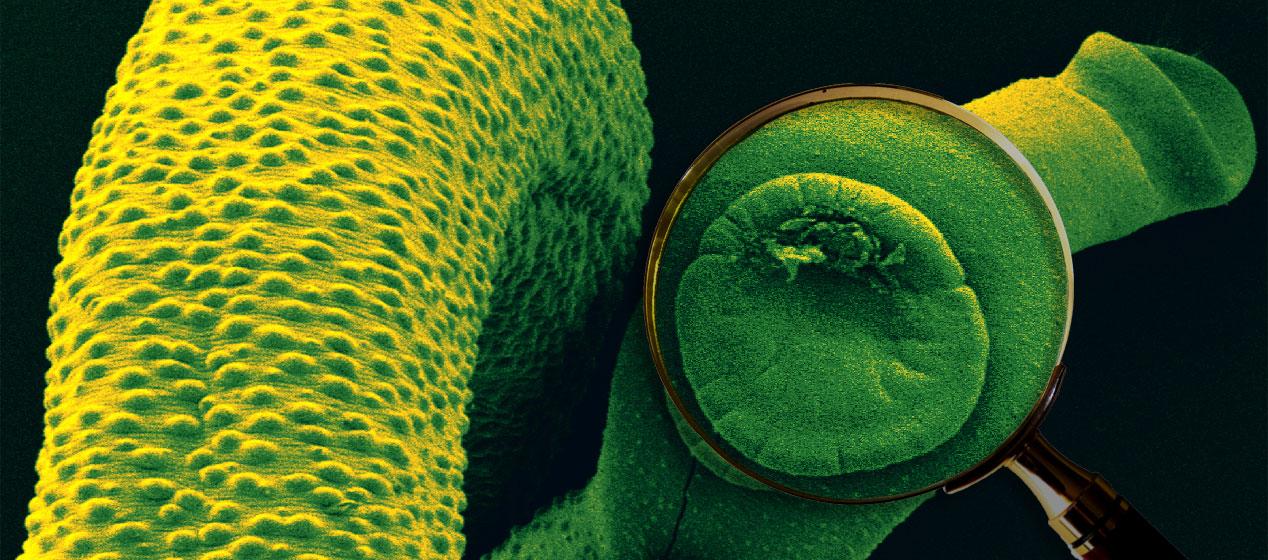
Submitted by Administrator on Mon, 26/11/2018 - 15:46
09 Nov 2018 - New research into the genomes of roundworms and flatworms has paved the way for the development of new treatments for parasitic worm infections.
New research into the genomes of roundworms and flatworms has paved the way for the development of new treatments for parasitic worm infections.
Parasitic worm infections can affect plants, livestock and humans. They can have a devastating impact on peoples’ lives, causing chronic infections that lead to undernourishment, disabilities and social stigma. Despite this, research investment in this area is low, and there are few existing drug treatments.
Researchers examined the genomes of 81 parasitic and non-parasitic worms, including producing new genome data for 31 roundworm species and 14 flatworm species. They found gene families in some parasitic worm species that, for example, affect the immune systems of hosts, or allow worms to pass through host tissue. The study identifies 40 high-priority drug targets for further study, which could pave the way for new treatments in the future.
The study was undertaken by the International Helminth Genomes Consortium. The project was led by Matthew Berriman, Wellcome Sanger Institute, and Makedonka Mitreva, Washington University of St Louis.
Read full news article on the Wellcome Sanger Institute website at https://www.sanger.ac.uk/news/view/largest-parasitic-worm-genetic-study-hatches-novel-treatment-possibilities
Read the full paper: Avril Coghlan et al. (2018) Comparative genomics of the major parasitic worms. Nature Genetics DOI: 10.1038/s41588-018-0262-1
Image credit: David Goulding, Wellcome Sanger Institute

